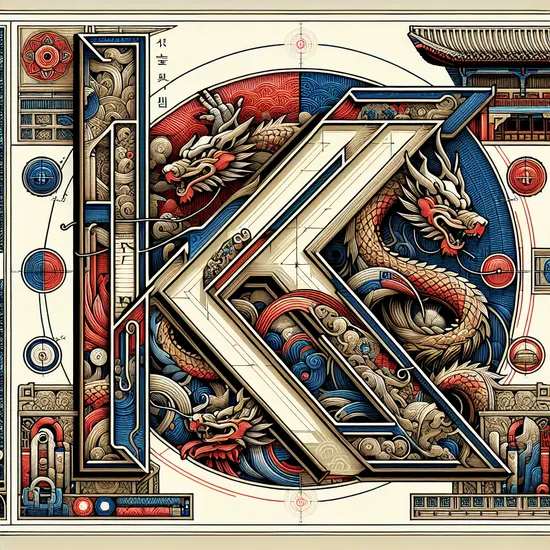Kang - Meaning, Origin, and Popularity
Meaning of Kang
The name Kang holds great significance, often interpreted as strong or noble. Historically, it is associated with leadership and warriors, reflecting a sense of power and commitment. Employed in various cultures, it carries different meanings but consistently portrays attributes of strength and nobility.
Find more names related to the name Kang.
Strong,
Noble,
Leader,
Warrior,
Chinese,
Korean,
Pronunciation of 康 in Chinese
/kʰɑ̀ŋ/ - 康
- /kʰ/: a voiceless velar plosive, like 'k' in 'kit'
- /ɑ̀/: an open back unrounded vowel, similar to 'a' in 'father'
- /ŋ/: a voiced velar nasal, as the 'ng' sound in 'sing'
In plain English, it is pronounced as 'Kang' with emphasis on the 'k' sound, followed by a deep 'ah' and concluding with 'ng' similar to 'song'.
Origin of the Name Kang
The name Kang has its roots in the Chinese culture, where it is prominently found as a surname. It is linked to dynasties and imperial lineage, embodying heritage and continuity. In Korea, it also represents clans with a rich historical background. Overall, it conveys an idea of cultural depth and familial ties.
Gender Neutrality of Kang
The name Kang is gender-neutral, used for both males and females across different regions, especially in China and Korea. It gains recognition in modern naming trends that value inclusivity. Many notable figures such as Kang Min-hyuk and Kang Hye-jung highlight its unisex appeal further.
Popularity of Kang
In regions like China and Korea, Kang ranks high among surnames. Its use as a given name is more rare but growing in global communities. Popularity trends indicate a steady climb as a first name, especially in areas with significant East Asian populations, reflecting cultural pride and identity.
Global Usage of Kang
The name Kang is used in various countries like China, Korea, and parts of Western countries with Asian populations. While retaining its original pronunciation, it adapts to different languages, like 'Kahn' or 'Kong,' showcasing its linguistic adaptability. Each region celebrates its unique cultural significance.
| Global Distribution and Gender Ratio of the Name Kang |
| Country |
Usage % |
Female % |
Male % |
| ID |
42.76% |
3.09% |
96.91% |
| MY |
16.44% |
14.69% |
85.31% |
| KR |
14.43% |
31.47% |
68.53% |
| TH |
7.64% |
38.35% |
61.65% |
| SG |
6.49% |
16.81% |
83.19% |
The analysis of gender and popularity by country leverages data sourced from
Gender API.
Characteristic Features Associated with Kang
- Leadership: Individuals named Kang often exhibit strong leadership qualities.
- Loyalty: A strong sense of loyalty defines many with this name.
- Cultural Pride: Often connected to cultural history and pride.
- Strength: The name is associated with strength and endurance.
Professional Orientation for Kang
- Leadership Roles: Often drawn to roles that require leadership and responsibility.
- Creative Fields: Inclined towards arts and innovation.
- Cultural Arts: Participation in fields preserving heritage.
- Public Service: Involved in sectors advocating societal welfare.
Unique and Interesting Characteristics of Kang
- Pop Culture Icon: Often features in Asian dramas and films.
- Cultural Legacy: Symbolizes a connection to dynastic history.
- Modern Usage: Increasingly popular as a first name in global communities.
- Influential Public Figures: Name of several well-known artists and leaders.
Famous People Named Kang
- Kang Min-hyuk: Musician and actor
- Kang Hye-jung: Actress
- Kang The Conqueror: Fictional character in comics
Similar Names
-
Jiang: Jiang means river, resonating with strength and continuity.
-
Liang: Liang translates to bright or good, echoing positive attributes.
-
Zhang: Zhang refers to archer, symbolizing precision.
-
Hang: Hang means firm or steadfast, similar in value.
-
Wang: Wang often signifies king or ruler.
-
Song: Song represents eternal, aligning with long-lasting nature.
-
Cheng: Cheng translates to success, illustrating forward progression.
-
Jin: Jin means gold or valuable, highlighting richness.
-
Yin: Yin conveys shaded or shadowed, depicting depth.
-
Lin: Lin refers to forest, signifying growth and abundance.
